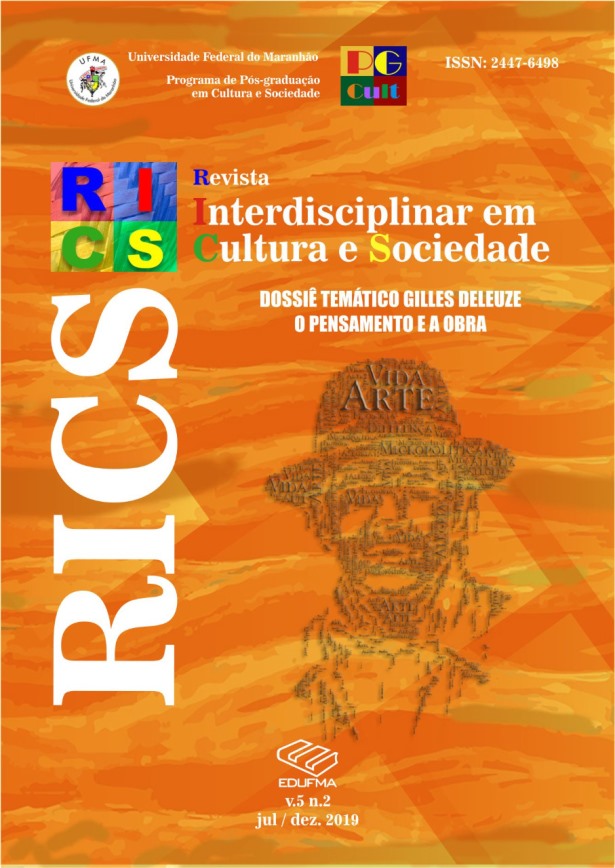Deleuze e a crítica aos postulados da imagem dogmática do pensamento
Résumé
Enunciar o problema da possibilidade de conhecimento do ponto de vista da história da filosofia implica em um rol de questões desenvolvidas pelos filósofos desde os gregos até o nosso século. Sendo assim, buscaremos delimitar nosso problema em torno da filosofia de Deleuze, em especial nos seus escritos sobre aquilo que denominou “imagem dogmática do pensamento”. Nosso artigo tentará traçar uma forma de genealogia do dogmatismo filosófico segundo linhas internas à obra de Deleuze, mostrando a evolução do problema desde sua primeira menção no livro dedicado a Nietzsche (1962) até as teses de Diferença e repetição (1968). Na verdade, sustentamos a hipótese de que as críticas colocadas nesse último livro servem para coroar as primeiras intuições de Deleuze acerca do mesmo problema.Palavras-chave: Deleuze. Imagem Dogmática do Pensamento. Problema.
Deleuze and the critique to the postulates of the dogmatic image of thought
ABSTRACT:
Enunciating the matter of the possibility of thinking from the perspective of history of philosophy implies a set of questions cultivated by philosophers since the Greeks until our century. Therefore, we will try to focus on defining our matter around Deleuze’s philosophy, especially on his writings about what he called “dogmatic image of thought”. This paper will try to draw a kind of genealogy about philosophical dogmatism, based on Deleuze’s work, showing the evolution of this problem since its first mention in his book dedicated to Nietzsche until the thesis from Difference and repetition. Actually we support the hypothesis that the critiques exposed in this last book serve to top Deleuze’s first intuitions about the same matter.
Keywords: Deleuze. Dogmatic Image of Thought. Problem.
[1] Artigo submetido para avaliação em 28/10/2019 e aprovado em 01/11/2019.
Téléchargements
Téléchargements
Publié-e
Comment citer
Numéro
Rubrique
Licence

Este trabalho está licenciado com uma Licença Creative Commons Atribuição 4.0 Internacional. Os autores da Revista Interdisciplinar em Cultura e Sociedade mantêm os direitos autorais.


















